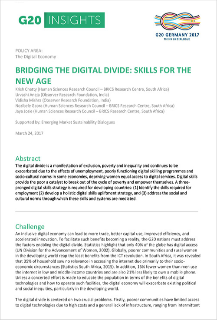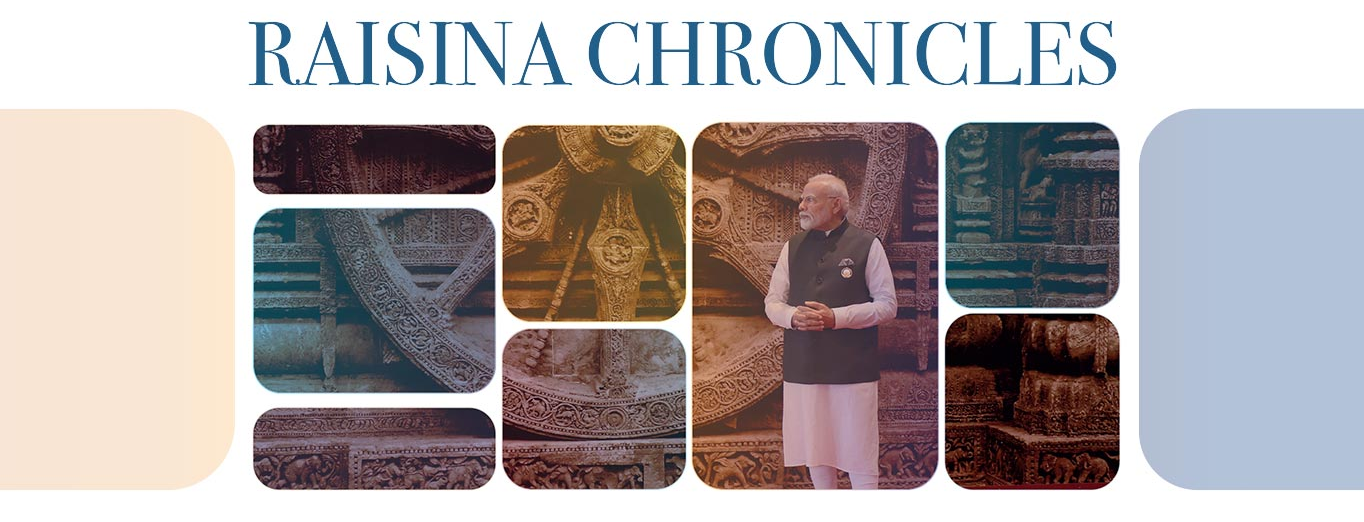
This article is a part of the series - Raisina Chronicles 2024
In the evolving landscape of global finance, development banks play a pivotal role in shaping economic and social policies. They are important in fostering economic development, reducing poverty, and addressing socio-economic challenges by facilitating investment in key sectors, supporting infrastructure development, and promoting sustainable practices in the regions they serve. Despite the critical importance of these institutions, women are significantly underrepresented in their leadership. This commentary argues for the necessity of women leading development banks, not merely for the sake of gender equality but for the strategic, diverse perspectives they bring, which are essential for inclusive and effective development strategies.
Please read the full volume here.
Historical Context and Current State
Historically, the banking and financial sectors have been maledominated fields. A recent BCG study found that women are significantly underrepresented in senior finance functions. This gender disparity extends to leadership roles in development banks. According to a report by the Official Monetary and Financial Institutions Forum, only 14 percent of top positions in global financial institutions are held by women. This underrepresentation is not reflective of a lack of capability but rather systemic and structural barriers and biases that have long excluded women from these roles, including negative stereotypes, limited opportunities for mentorship, a lack of support networks to facilitate career progression, worklife balance challenges, and a lack of representation in the top financial sector jobs. Addressing the underrepresentation of women in senior financial positions requires a concerted effort from both financial institutions and the wider society to challenge biases, create supportive environments, and actively promote gender diversity and inclusion.
A recent BCG study found that women are significantly underrepresented in senior finance functions. This gender disparity extends to leadership roles in development banks.
Benefits of Women in Leadership Roles
Diverse leadership in financial institutions correlates with better performance and innovation. The benefits of having women in leadership positions are well known—they bring a diversity of perspectives, enhanced creativity and decision-making, greater resilience, better employee engagement and morale, a broader market understanding, and improved financial performance. A McKinsey & Company report highlighted that companies with more diverse executive teams are 33 percent more likely to see better-than-average profits.
Women in leadership roles serve as role models and inspire other women to pursue leadership positions. Their presence can encourage young women to aspire to leadership roles and break through barriers. For instance, the current First Deputy Managing Director of the International Monetary Fund (IMF) Gita Gopinath’s tenure at the IMF exemplifies the positive impact of female leadership in a global financial institution.
Women in leadership roles serve as role models and inspire other women to pursue leadership positions. Their presence can encourage young women to aspire to leadership roles and break through barriers.
However, gender balance within the development bank sector (as well as all other financial sectors) is a long way off and is damaging institutions.
Women Bring Unique Perspectives to Development Banks
Women bring different life experiences and perspectives, which can lead to more holistic and inclusive decision-making.
Women leaders often emphasise empathy and emotional intelligence, which are crucial for understanding and addressing the multifaceted challenges faced by developing nations. Their approach to risk management can be more cautious and thorough, leading to more sustainable long-term strategies. A study by the IMF indicated that the presence of women in leadership roles in financial institutions contributes to the financial stability and governance of the institutions. Research has shown that women are better able to deal with difficult relationships and situations and are more likely to pay close attention to other’s needs—skills necessary for respectful and constructive relationships between development banks and their beneficiaries. The same study also showed women are inclined towards the prevention and resolution of conflicts, more readily share views with others, and make efforts to reach agreement. These are all necessary components of a successful partnership and are particularly important in the development sector, which often sees banks working with vulnerable or disadvantaged people who may be left open to exploitation.
Women leaders often emphasise empathy and emotional intelligence, which are crucial for understanding and addressing the multifaceted challenges faced by developing nations.
Economic and Social Impacts
Empirical evidence suggests that women-led banks can significantly influence development outcomes. These institutions often focus more on social development and gender equality, which are key drivers of overall economic growth. For example, under the leadership of women, development banks have been more inclined to invest in women-centric economic initiatives, thereby empowering a significant but often neglected demographic.
Female-run small- and medium-sized enterprises (SMEs) have enormous potential in underdeveloped and developing nations. In Africa alone, they account for 60 percent of the continent’s entire GDP, as well as representing most jobs held by its nationals. This impressive figure is despite a serious lack of funding. Barely 20 percent of African women small and medium enterprise founders have access to any formal form of investment, which amounts to a US$ 42 billion financing gap. The African Development Bank Group is just one development bank seeking to address this through their Affirmative Finance Action for Women in Africa scheme, and their newly appointed Director of the Gender, Women and Civil Society Department, Malado Kaba, has over 25 years of experience in international development and finance, covering public policy, macroeconomic policies, and gender and development strategies.
Case Studies and Examples
Several women have broken through these barriers and led development banks effectively. For instance, Ngozi Okonjo-Iweala’s leadership at the World Bank brought significant changes in its approach to development financing, focusing more on sustainable and inclusive growth. Her impact highlights the positive changes that can occur under female leadership.
Kristalina Georgieva served as the CEO of the World Bank from 2017 to 2019 before leaving to become the Managing Director of the IMF—the first figure from an emerging economy to do so. Throughout her career, Georgieva has focused on the climate crisis and its link to financial stability, and rising debt levels in Africa; and she is now an important figure for socially-responsible development and funding.
Odile Renaud-Basso became the President of European Bank for Reconstruction and Development in November 2020, marking a significant milestone as the first female president of the bank. Her own areas of expertise include accelerating climate change mitigation and adaptation and leveraging economic and financial systems for sustainability.
As shown by the careers of each of these formidable women, female leaders within the development sector often prioritise sustainable and equitable development, focusing on long-term solutions that benefit both present and future generations.
Strategies for Promoting Women in Leadership
Despite the clear benefits, women face numerous obstacles in reaching leadership positions in development banks. While the gender pay gap is a longstanding issue, the focus is on nuanced solutions beyond equal pay for equal work. This involves addressing the ‘motherhood penalty’, ensuring transparency in pay structures, and dismantling systemic barriers that women face in higher-paying industries and roles. Addressing these systemic barriers is crucial to enable more women to ascend to these influential roles.
To increase female representation in leadership roles, development banks and governments must implement targeted strategies. These could include mentorship, sponsorship and networking programmes, policies promoting work-life balance, and initiatives to address unconscious bias in hiring and promotion processes. It is also important to support education and skill development initiatives for women, including access to higher education, training programmes, and professional development opportunities in fields relevant to STEM (science, technology, engineering, and math) training and development leadership.
Female role models should also be showcased to inspire other women to pursue leadership positions.
The Raisina Dialogue is uniquely positioned to address the question of gender parity. By providing a platform to diverse voices from around the globe, Raisina allows for nuanced discourse on strategies to dismantle the systematic barriers women face in entering senior finance roles. Being multi-stakeholder and cross-sectoral in nature, the Dialogue provides a platform for high-level advocacy, where the case can be effectively put forward that the issue of underrepresentation is not just a question of equality; it is a matter of existential import for development banks, which need women in senior ranks to remain relevant, effective, and efficient in the 21st century.
Conclusion
The need for women to lead development banks is not just a matter of equality but also of efficiency and effectiveness in development financing. Women bring unique and valuable perspectives that can drive more inclusive and sustainable development strategies. It is imperative for the global community to recognise and act on this necessity by breaking down barriers and creating pathways for women to ascend to these critical leadership roles.
The views expressed above belong to the author(s). ORF research and analyses now available on Telegram! Click here to access our curated content — blogs, longforms and interviews.




 PREV
PREV



